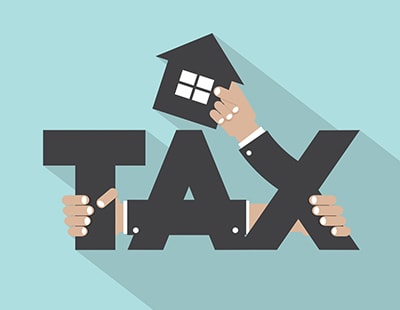
The Chartered Institute of Taxation has issued a reminder to buy to let investors that the first phase of the restriction of tax relief they get for mortgage interest to the basic rate of income tax begins next week.
The change means that finance costs such as mortgage interest will no longer be able to be deducted in full to work out taxable property profits. All individual residential landlords with finance costs will be affected.
The restriction works by disallowing finance costs in calculating the taxable rental profit, and then introducing a tax credit equal to 20 per cent of the disallowed costs.
“This is one of the most significant changes to the buy to let market in decades and will particularly affect heavily geared buy-to-let landlords. However, it is sensible for landlords to be cautious about making any knee-jerk moves in response to the changes” says Brian Slater, chair of the institute’s property taxes sub-committee.
“A decision to sell properties may be tempting for those that are highly geared, meaning they are carrying a lot of debt from perhaps buying many properties or a couple of expensive ones and can no longer benefit from the relief.
“Helpfully the change is being phased in over four tax years, so that the full effect of the restriction will not be felt until tax year 2020/21. This will give landlords extra time to consider their options” he adds.
“Taxpayers may have to decide whether to continue in buy to lets with reduced profits or simply sell their properties, which may impact on the number of houses and flats available to buy. Or such people could move into commercial property renting, but they will find that to be a more specialised field.
“The restrictions apply to individual landlords and not to companies, which will continue to receive relief for mortgage interest and other finance costs in the usual way. This means that the change may impact on the look of the rental landscape in the future if many individual landlords choose to incorporate and become companies, although this is not without difficulty and incorporation itself can involve tax charges; these may be stamp duty land tax on the market value of properties and possible capital gains tax on properties transferred into a company.”













%20-%20IMAGE%20Client%20Accounting%20%E2%80%93%20what%20are%20your%20options.jpg)





Join the conversation
Jump to latest comment and add your reply
It's starting to feel like the rabbit warren scene at the beginning of Watership Down.
Landlords have nowhere to go.
The questions for Govt I have are:
How many of the 400,000 Landlords affected (as HMRC suggests) are highly geared and how many will choose to sell.
Of those that sell how long will it take to have an affect, if any, on the gap between house prices and affordability.
Finally, while this is going on, where are the Tenants who have been served S21's to vacate due to property sales going to go? There will be fewer PRS properties and higher rents.
LAs are not increasing social housing builds so homelessness highly likely to increase.
Please login to comment